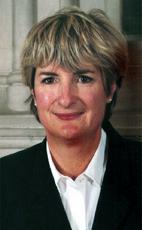Mr. Speaker, it gives me pleasure to announce to the House that the week of November 25 to December 1, this week, is National AIDS Awareness Week.
This year, we are marking a special anniversary, but we do not celebrate it. In 1981, the first case of what would be called AIDS was reported in North America. Twenty years have passed and the disease remains with us. Indeed, it is a global epidemic.
The time has come to consider what Canada has done to fight the epidemic and to find ways to expand the fight against this disease.
Progress has been made. Thanks to new treatments, Canadians who have the disease live much longer. However, the rate of infection remains high, as does the need for increased awareness and education.
During National AIDS Awareness Week, hundreds of people and communities are working to collect funds and develop public awareness.
I ask all my colleagues to wear a red ribbon in tribute to those who have died from the effects of this illness and to those who face it daily.

